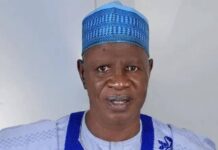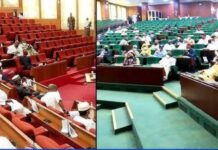In darkness we wait: Time to rethink Nigeria’s power sector, by Yusuf Alhaji Lawan
Nigeria, Africa’s largest economy, remains shrouded in darkness as the nation’s power sector continues to stumble. The recurring specter of national grid collapses, coupled with protracted power outages, has become an all-too-familiar reality for millions of Nigerians. The consequences are dire; businesses falter, hospitals struggle, and households suffer. Decades of reliance on a centralized, inefficient, and under-funded power infrastructure have failed to deliver reliable electricity.
As the country teeters on the brink of energy insecurity, it is clear that radical reform is imperative. The status quo is unsustainable. It is time to rethink Nigeria’s power sector, embracing innovative solutions that prioritize decentralization, renewable energy, and community-driven initiatives.
In Nigeria, it is the norm to expect power outages, not stability. The rare instances of uninterrupted electricity are met with surprise, even amusement. Patriots sarcastically query each other during periods of prolonged power supply, “Is the off switch malfunctioning or the person responsible for putting off the power on french leave?
It is sad that we have resigned ourselves to this dismal reality for decades, perpetuating a cycle that spans generations, from our parents to us, and now to our children. Despite being richly endowed with human and natural resources, enabling us to compete globally, we continue to languish in this energy crisis. It begs the question: must we remain mired in this status quo, or can we harness our potential to create a better future?
As I pen this article, a significant portion of Nigeria, including the North East and North West regions, has been plunged into total darkness for days. Meanwhile, the rest of the country struggles with erratic power supply, still reeling from the latest national grid collapse, reportedly the eighth such incident in 2024 alone, according to observers.
Nigeria boasts an abundance of untapped resources, ripe for development. To unlock this potential, a fundamental shift in government approach is imperative; embracing decentralization. Given that power generation is inherently decentralized, continued centralization is counterintuitive.
Decentralization offers a multifaceted solution by mitigating widespread power outages as faults are not likely to affect the entire nation at the same time. It also enables focused maintenance and upgrade of individual units, enhancing security through localized power control and fostering regional development and economic growth.
It is imperative for state governors, individually or collaboratively, to explore high-impact investments in the power sector, prioritizing off-grid solutions for sustainable state development. This can be achieved through various context-specific initiatives, tailored to each state’s unique nature and characteristics.
Empowering individual households with solar energy solutions offers a viable path to energy independence. Innovative solar panels integrated into roofing sheets provide a seamless and aesthetically pleasing alternative to traditional roofing materials. These building-integrated photovoltaics (BIPV) enable homeowners to generate clean energy, reducing reliance on the grid and minimizing electricity bills. With solar roofing sheets, households can enjoy uninterrupted power supply, enhanced energy security, and decreased carbon footprint.
Moreover, advancements in technology have made solar panels more efficient, durable, and affordable, making them an attractive option for homeowners seeking energy autonomy. By adopting solar-powered roofing, individuals can break free from grid dependence, enjoy significant cost savings, and contribute to a sustainable future for generations to come.
States blessed with abundant water resources can harness the potential of independent hydropower, unlocking a reliable and renewable energy source. By leveraging rivers, streams, and dams, mini-hydroelectric power plants can be established to serve local communities, industries, and households. This decentralized approach bypasses the vulnerabilities of the national grid.
Nigeria’s coastal and high-altitude regions offer ideal conditions for harnessing wind energy, a clean and abundant alternative to traditional power sources. Wind farms strategically located can capitalize on consistent breeze patterns, generating electricity for local communities, industries, and households.
Coastal areas like Lagos, Rivers, and Delta, and high-altitude regions such as Jos and Bauchi, are prime locations for wind farms. With advancements in turbine technology, wind energy has become increasingly efficient and cost-effective.
Nigeria’s agricultural landscape presents a vast opportunity for biomass energy generation, converting waste into electricity. Agricultural residues from crops like cassava, rice, maize, and sugarcane can be harnessed to produce power, reducing reliance on fossil fuels and enhancing energy security. States with high agricultural output, such as: Benue (cassava and yam), Kogi (cassava and rice), Niger (rice and sugarcane), Taraba (cassava and maize), Ogun (cassava and cocoa), etc can pioneer biomass energy initiatives.
As Nigeria grapples with persistent power outages, decentralization and renewable energy emerge as beacon of hope. By harnessing solar, hydro, wind, and biomass potential, we can illuminate our communities, stimulate growth, and secure a prosperous future. The time for transformative change is now.
Yusuf Alhaji Lawan writes from Hausawa Asibiti Ward, Potiskum Yobe State. He can be reached via nasidi30@gmail.com.
Follow the Neptune Prime channel on WhatsApp:
Do you have breaking news, interview request, opinion, suggestion, or want your event covered? Email us at neptuneprime2233@gmail.com





